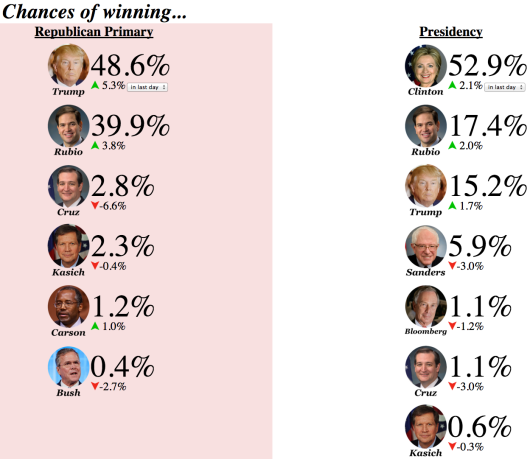Random notes
Got home at 3am, another Logan airport nightmare. Lots of catching up to do. Here are a few items of interest:
1. Fiscal back-up? David Beckworth had a piece in the Financial Times, Alphaville:
As noted above, a NGDP growth path target should create its own self-fulling expectations of stable demand growth. One way to reinforce this tendency and insure against central bank incompetence is to have the U.S. Treasury Department provide an automatic backstop for the spending target. This would make the system foolproof.
The way it would work is that once a year the Treasury Department would check to see if the Fed was keeping total dollar spending on target. If it fell below target, the Treasury Department would automatically deposit bonds at the Fed and send the new money created by those deposits directly to households. It would continue to do so until spending got back up to its targeted growth path.
If total dollar spending were above target, the Treasury Department would again deposit bonds at the Fed. But this time the Fed would be required sell the bonds to the public, which would take money out of circulation. The Treasury Department and the Fed would continue doing this until spending fell back down to its targeted growth path.
The Treasury backstop would further reinforce the public’s expectation that the NGDP target would be hit at all times. With this expectation, however, the Treasury Department would rarely if ever need to provide an actual backstop. The target, in other words, would become a self-fulling outcome where the public did the actual heavy lifting by adjusting their spending patterns.
The Treasury backstop would also provide a strong incentive for the Fed to do its job well. The public humiliation of having someone else doing their job would make Fed officials work very hard to stabilize spending the first place. This would reinforce the credibility of the target.
I’m generally skeptical of fiscal stimulus. But I think this plan might work, with one modification. If at any time the Treasury had to come in and rescue monetary policy, and the Fed was not 100% out of ammunition at the time, then the entire FOMC would be immediately fired, with no pension, and replaced with new people. That’s the sort of compromise monetary/fiscal coordination I could support.
What would it mean to not be out of ammo? In my view it should mean that interest rates on reserves are above negative 10%, and the Fed does not own some marketable investment grade bonds, somewhere in the world, that are being actively traded. The Treasury may prefer a different set of criteria. But wherever the Fed’s boundaries are, they need to be clearly spelled out. Ambiguity hurts the effectiveness of monetary policy.
I agree with David that this plan (with the modification I suggest) would eliminate the need for the Treasury to intervene. The Chuck Norris effect would be enough. David’s much wiser than me, realizing that self-indulgent tirades against the stupidity of helicopter drops are foolish, and that one can win more friends through policies that provide the reassurance of fiscal backup, without actually needing that backup in 99.999% of the cases. That’s why he gets invited to write for the New York Times.
I’m very pleased to announce that David Beckworth will be joining the Program on Monetary Policy at Mercatus during the first half of this year. He has lots of exciting plans, including podcasts involving interviews with monetary policy experts.
2. Profiles in cowardice: Chris Christie:
He said on “Morning Joe” afterward that Bush “had a chance to take on Donald Trump on Saturday night, and I don’t think really effectively delivered that punch.”
Could you? I asked Christie.
“Of course I could,” the New Jersey governor responded, mildly annoyed at even being asked about the limits of his sparring talents.
So why hadn’t he?
“I do so at a time and place of my choosing. There’s no need for me to do that now,” Christie said.
The next day, Christie dropped out. And the Republican Party said goodbye to the only presidential candidate with the combination of quick wit, charisma and gravitas necessary to stand up to Trump one on one.
Whenever I don’t know a person’s motives, I always like to assume the best. Since I don’t know Christie’s motives for not going after Trump, I am going to assume the least bad interpretation, cowardice, and not something far worse, like hoping for a VP slot, or secret sympathy with his demagoguery. If you think I’m being too kind to Christie, explain why. If you think I’m being too mean, just go away.
3. Banning bad commenters: I’ve always had an uncanny ability to predict a person’s character just based on their name. I know this seems hard to believe, but you’ll just have to take my word for it. My “sixth sense” smelled a rat when a commenter named “Shmebulock, Crusher of Pussy” entered the scene a few days ago. I’ve never banned a commenter in 7 years of blogging, and almost never banned a comment. But there’s a first time for everything. This cat smasher had an almost Trump-like mix of boring, juvenile and stupid, which led to him (I’m also pretty good at guessing gender) being awarded the first lifetime ban. Congratulations to Crusher. He wasn’t even able to mimic the humor of Ray’s inanities. Of course there are many others that richly deserve banning, and would be banned in a classier venue than this one. So consider the banning of Crusher to be a shot across the bow. Once I’ve taste blood, it might become a habit. Who knows how many people I’ll ban?
And to any potential commenter who says “You banned Crusher but not X, so you must find X’s racism, sexism, homophobia, etc., acceptable” my only response is . . . actually I can’t give you my response, it’s so rude I’d have to ban myself.



